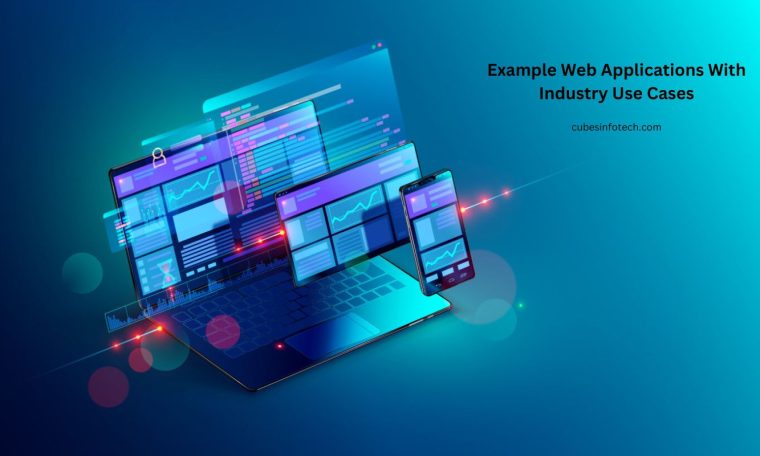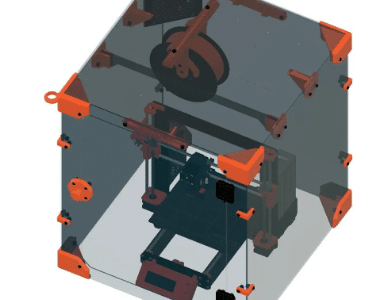
Whether it’s about driving more revenue for your business or strengthening your branding game, an impactful online presence is crucial. To make sure this is done right, there are several other aspects that need your attention. One of them is choosing the right digital solution.
Over the course of time, web applications have perfectly seasoned to compete with robust apps in the mobile first era. Top players in the industry like Amazon, Starbucks, Netflix, Uber, and many others continue to take advantage of these futuristic applications.
Not only do you get great performance and reliability when opting for web app development, but also different types of web applications to choose from. These include static, dynamic, single-page, multi-page, animated, portal, e-commerce, progressive web applications and a few others.
The best decisions are driven by the awareness of possibilities. Therefore, in this blog, we will introduce you to the various types of web applications with industry-specific examples and their best use cases.
10 Different Types Of Web Applications With Examples
Let’s explore the different types of web applications along with examples and their use cases, pros, and cons so you can choose the most suitable one to represent your business.
Static Web Apps
Static web apps can be called the advanced versions of traditional websites and are the simplest to develop. They deliver content directly to the end users’ browser without having to fetch data from any server. These web applications are built using JavaScript, HTML and CSS. While you can add videos, images, and GIFs to static applications, they can get challenging when it comes to updates.
Dynamic Web Apps
Dynamic web apps generate real-time data based on user requests and server responses. Such apps show content that the users want to see. For example:
Consider a OTT platform. If you search for and watch an action movie, it will recommend you more movies from the same genre. That’s pretty much what every other application does these days.
Single-Page Applications
Single-page applications do not require page-reloading. It runs entirely within a web browser and displays a single web page or document. While only the content body, the other information remains unchanged.
For example: Gmail or any other email app. While you access the inbox, the header and sidebars always remain the same. Such applications are faster than traditional websites since there’s no server to act as a middleman. The logic is implemented directly to the web browser.
Multi-Page Applications
These applications consist of multiple pages and reload the entire page as the users navigate from one page to another. For example: during an online shopping experience when you add a product to cart, the application navigates you to the next page (may be additional details page/payment confirmation page).
Companies that offer multiple products to their users often need to allow the users to interact with the application in different ways. Multi-page applications appear to be good solutions in that case.
Content Management Systems (CMS)
Content management systems allow users to easily manage digital content and also simplify the production and updates in content. These systems can be used to create, modify, and manage content on the web with no to less technical knowledge.
There’s no need for coding or knowing markup languages. Users can easily publish blogs or other web content using a CMS. WordPress is one of the best examples for the same.
Animated Web Apps
These are the types of web applications that support synchronization and animation on web platforms. These solutions are generally built using JavaScript, HTML5, CSS, SVG, and FLASH. Animated web apps do not have any direct impact on the search engine. However they represent a modern, unique design and purpose.
Portal Web Apps
Portal web apps are accessible via the web and can extract details from online forms, emails, and search engines in a uniform manner. With personalized access and user-centric navigation, these web apps allow scaling an organization’s processes.
Portal web apps can be of different types: patient portal, client portal, educational/student portal.
E-Commerce Web Applications
Ecommerce web applications allow users to buy and sell products online. They come with online payments and transactions integration that are crucial for them. Ecommerce solutions are based on technologies like mobile commerce inventory management, electronic funds, supply-chain management, and internet market.
Rich Internet Applications
These are probably the most productive types of web applications. RIAs are generally aware of the browser limitations and depend on third-party applications. These web apps are built using design layouts and markup languages that make it visually appealing and more interactive.
They come with AI-integrated features to facilitate regular tasks for users like creating or updating content without having to install other software.
Build A Robust Web App With Us
We hope this blog gives you a clear insight into the different types of web applications you can build to scale and automate your business. While there are many web application examples you will find, your enterprise and its requirements are unique. Therefore, the best decision could be made only with extensive research and proper guidance.
At Cubes Infotech, our sole focus is meeting client’s unique business goals with excellent digital solutions that not only stand out but become successful. This is what our clients say.



